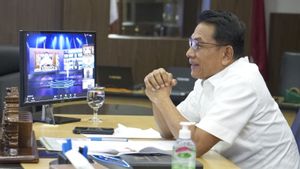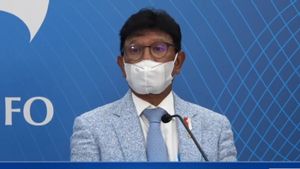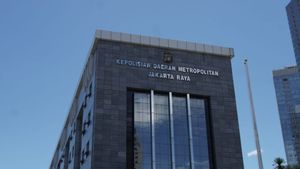JAKARTA - The Public Virtue Research Institute (PVRI) has raised a petition urging President Joko Widodo (Jokowi) to fire the chairman of the Corruption Eradication Commission (KPK), Firli Bahuri.
This pressure arose after the KPK refused to take corrective action from the Indonesian Ombudsman after the discovery of maladministration and abuse of authority in the National Insight Test Assessment (TWK) process as a condition for the transfer of employee status to State Civil Apparatus (ASN).
"We invite citizens of anyone and anywhere to voice this problem. The way is to sign and distribute this petition, this demand can reach the ears of the President," said the initiator and Spokesperson of PVRI, Yansen Dinata in a written statement on the PVRI website, Saturday, 6 August.
According to him, the refusal to take corrective action from the Indonesian Ombudsman proves that the KPK under Firli Bahuri's leadership is an anti-correction. In addition, this can also weaken the anti-corruption commission if it continues.
Moreover, so far the weakening of the KPK has actually occurred and has an impact on the low corruption perception index (GPA). Other forms of weakness are also seen from the decreasing quality and number of actions taken by the anti-corruption commission and the involvement of KPK leaders in various conflicts of interest.
"This must be stopped. We urge the President to remove the chairman of the KPK", said Yansen.
He said the public can participate in the petition that just started today by visiting www.change.org/pecatfirli and sharing it. Meanwhile, based on VOI's monitoring on the site, 84 people signed the petition as of 15.23 WIB.
As previously reported, the Corruption Eradication Commission (KPK) has expressed objections and will not carry out any corrective actions submitted by the Indonesian Ombudsman after maladministration and abuse of authority were found in the TWK implementation process.
There are 13 points of objection from the KPK which resulted in the refusal to carry out corrective actions according to the report of the Indonesian Ombudsman.
SEE ALSO:
Among these points, the KPK considers the Ombudsman to have violated its legal obligation to refuse reports or stop the examination of reports that are known to be under court examination.
The KPK also considers the legal standing of the reporter, that is, employees who are declared not to have passed the TWK are not the people who receive KPK services as parties who have the right to report to the Ombudsman.
Not only that, the KPK said that the corrective actions from the results of the Indonesian Ombudsman's report had no causal relationship and conflicted between the conclusions and the final report.
The English, Chinese, Japanese, Arabic, and French versions are automatically generated by the AI. So there may still be inaccuracies in translating, please always see Indonesian as our main language. (system supported by DigitalSiber.id)


















